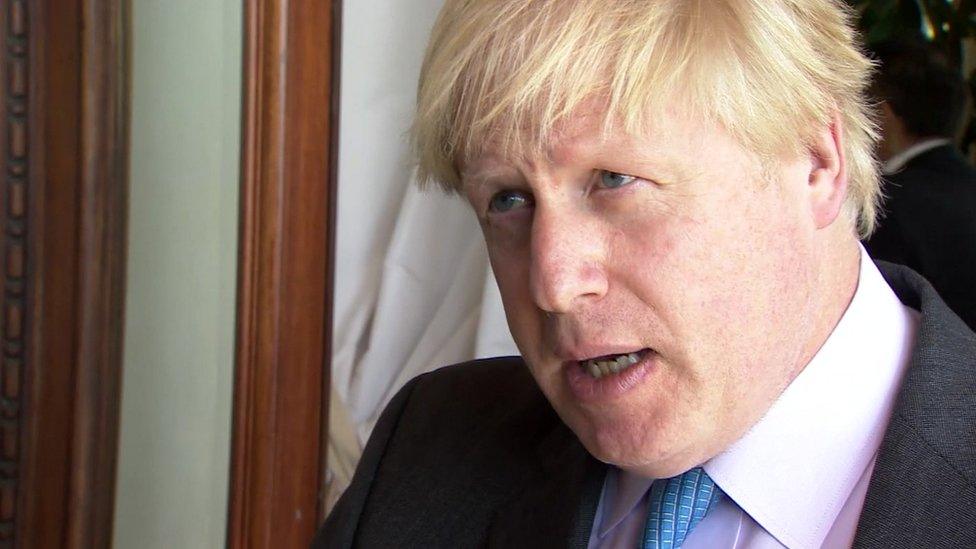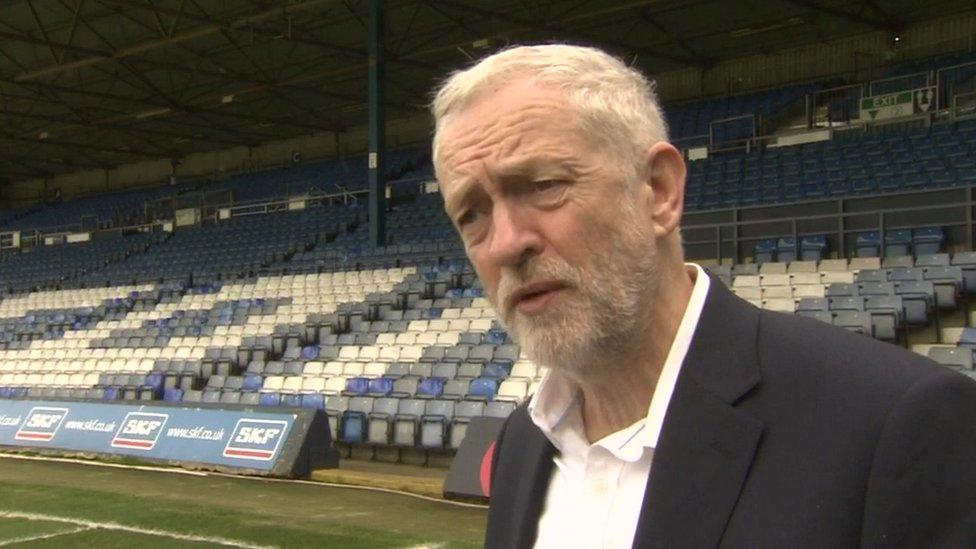Boris Johnson: Russia could face more sanctions over Syria
- Published

Further sanctions will be considered against Russia over the "appalling" behaviour of the Syrian regime, Boris Johnson says.
The foreign secretary urged Russia to "work with the rest of the world" rather than "stick like glue" to President Assad's regime.
G7 leaders are meeting to search for a unified solution to the Syrian war.
Russia and the United States have criticised each other following a US strike against a Syrian airbase.
US officials say the base was used to launch a chemical weapons attack that killed dozens of civilians.
Syria has denied using any chemical agents, and Russia says the US has failed to provide evidence Syria has chemical weapons.
Russia also accused the US of encouraging "terrorists" with its unilateral actions.
The UK government has backed the US action - and Mr Johnson, speaking as he arrived for the G7 talks in Lucca, said the strikes had "changed the game".
He said the evidence that President Assad's regime was behind a chemical weapons attack was "absolutely conclusive" and said Russian President Vladimir Putin was "toxifying the reputation of Russia by his continual association with a guy who has flagrantly poisoned his own people".
Asked about the possibility of further sanctions, he said "we will be discussing the possibility of further sanctions on some of the Syrian military figures and indeed on some of the Russian military figures who've been involved in co-ordinating the Syrian military efforts and who are therefore contaminated by the appalling behaviour of the Assad regime".

Labour leader Jeremy Corbyn criticised the US raid on a Syrian airbase
Earlier Labour leader Jeremy Corbyn - who did not support the US strikes on the Syrian airbase - warned of a "proxy war" developing between the United States and Russia.
The Labour leader also accused Foreign Secretary Mr Johnson of "encouraging further bombing" for suggesting the US could launch more missile strikes against the Syrian regime.
The Labour leader said Mr Johnson should have held "robust" talks with Russia rather than pulling out of a planned trip to Moscow, adding: "The solution has to be political."
He said: "Surely we have to get Russia and America around the table together to put pressure on respective parties to this war, because it's in danger of becoming a proxy war between them, in order to have a meaningful and effective ceasefire."
The Foreign Office is believed to have prepared a paper on possible sanctions that could be imposed on Russia that will be considered by G7 countries, BBC assistant political editor Norman Smith said.
Russia will also be offered a greater role in international affairs should it end its support for President Assad, in what Foreign Office sources described as "a carrot and stick approach", he added.